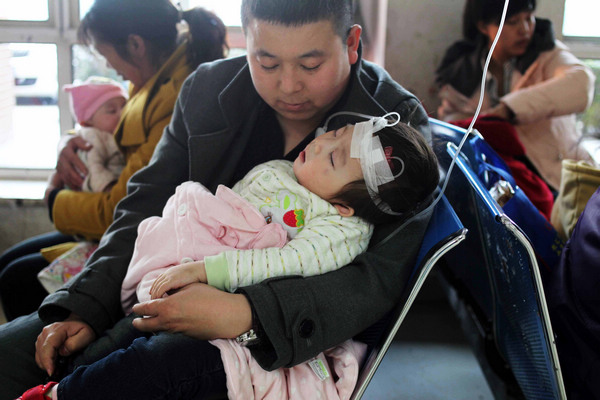Healthy cut in cost of medicine
Updated: 2012-03-13 07:32
By Jiang Xueqing and Yang Wanli (China Daily)
|
||||||||
Reforms will see prices lowered to bring more benefits, report Jiang Xueqing from Zhenjiang and Shanghai, and Yang Wanli from Huangshan.
For decades, Tan Shijin refused to visit his local community health center. Instead, whenever he was sick, he would travel 5 kilometers to the nearest public hospital.
"Doctors (at the center) were ill-mannered and prescribed expensive drugs," said the 76-year-old farmer in Huangshan, Anhui province, adding that he was once yelled at for asking if he could get a cheaper cold remedy.
Things have changed in recent years, however, largely thanks to a drug-procurement platform that has standardized the prices of about 600 essential medicines at rural clinics in Anhui and reduced the average cost for patients by more than 40 percent.
Reforms of the health sector began nationwide in 2009. However, experts and industry insiders say the process has entered a critical stage, especially for public hospitals.
At a February meeting of the State Council, Premier Wen Jiabao urged authorities to work together to change the way medical facilities generate revenue and to abolish the traditional practice of raising drug prices.
"To solve the problems that exist today, we urgently need to establish a scientific, rational, institutionalized and standardized compensation system (for public hospitals)," Minister of Health Chen Zhu told China Daily in an exclusive interview.
"With such a system," he added, "we'll be able to abandon the old ways - selling drugs for profit - and at the same time boost our doctors' enthusiasm for treating patients."
Chen said the government will pay special attention to county hospitals over the next three years, as well as push forward comprehensive nationwide reforms in administration, purchasing, distribution and pricing.
One of the forerunners of healthcare reform is Zhenjiang in East China's Jiangsu province.
Clinics in the city were previously allowed to sell medicine at 15 percent higher than the purchase price, which formed a large part of revenues.

 Relief reaches isolated village
Relief reaches isolated village
 Rainfall poses new threats to quake-hit region
Rainfall poses new threats to quake-hit region
 Funerals begin for Boston bombing victims
Funerals begin for Boston bombing victims
 Quake takeaway from China's Air Force
Quake takeaway from China's Air Force
 Obama celebrates young inventors at science fair
Obama celebrates young inventors at science fair
 Earth Day marked around the world
Earth Day marked around the world
 Volunteer team helping students find sense of normalcy
Volunteer team helping students find sense of normalcy
 Ethnic groups quick to join rescue efforts
Ethnic groups quick to join rescue efforts
Most Viewed
Editor's Picks

|

|

|

|

|

|
Today's Top News
Health new priority for quake zone
Xi meets US top military officer
Japan's boats driven out of Diaoyu
China mulls online shopping legislation
Bird flu death toll rises to 22
Putin appoints new ambassador to China
Japanese ships blocked from Diaoyu Islands
Inspired by Guan, more Chinese pick up golf
US Weekly

|

|







